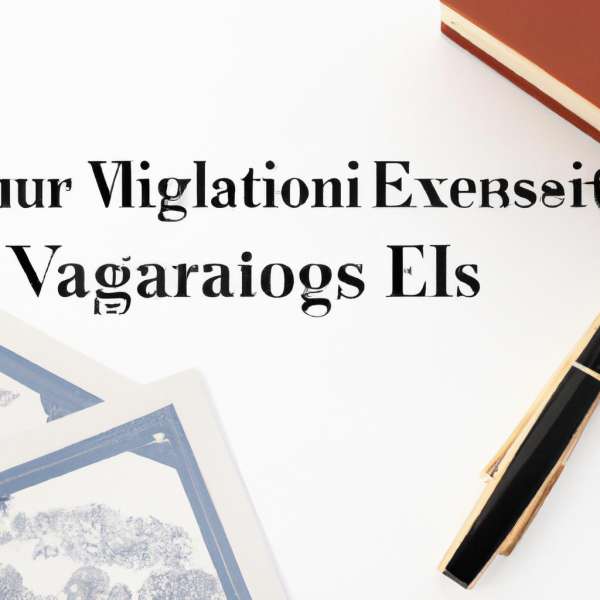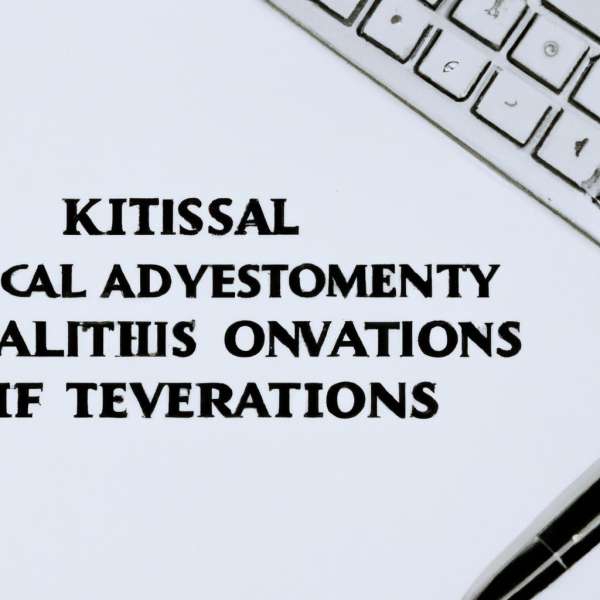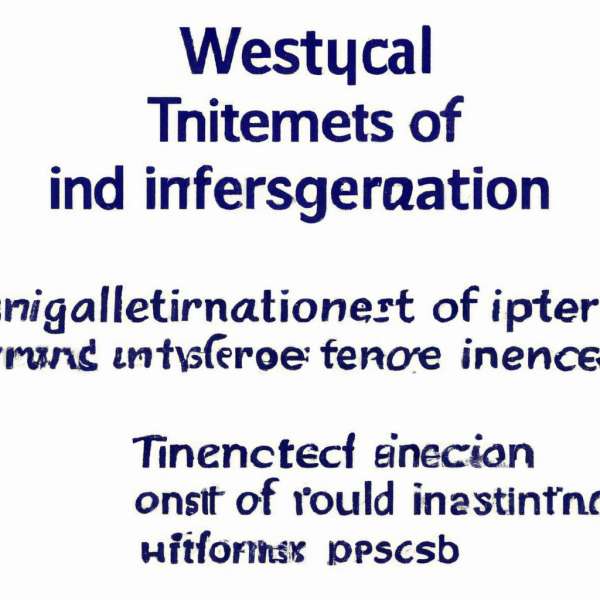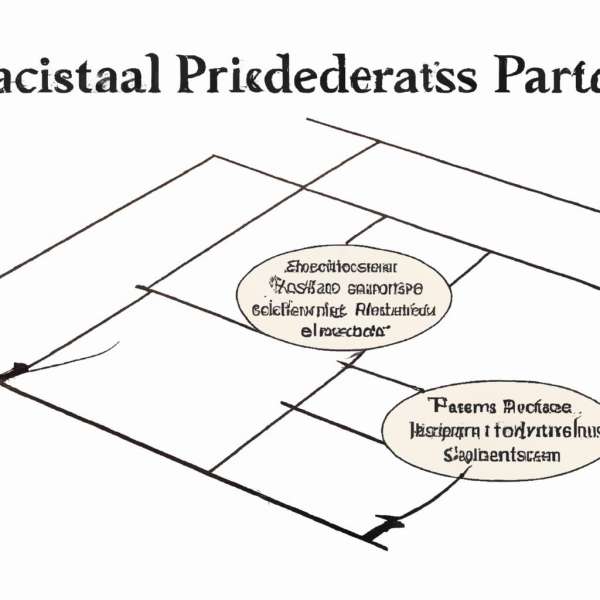Understanding Estate Planning for Non-U.S. Citizens
In an increasingly globalized world, the complexities of estate planning extend far beyond national borders. For non-U.S. citizens residing in or engaging with the United States, navigating the intricate maze of legal and financial considerations can be daunting. Whether it’s the protection of assets, the preservation of family legacies, or the fulfillment of personal wishes, understanding the nuances of estate planning is crucial. This article dives into the essential elements of estate planning tailored specifically for non-U.S. citizens, shedding light on the unique challenges and opportunities they face. As we explore the key aspects that influence this process—ranging from taxation implications to the intricacies of property rights—we aim to equip readers with the knowledge necessary to make informed decisions for their future and that of their loved ones. Join us as we unravel the layers of estate planning, ensuring that every individual, regardless of their citizenship status, feels empowered to secure their legacy.

Navigating the Complex Landscape of Estate Planning for Non-U.S. Citizens
Estate planning can be a daunting task for anyone, but for non-U.S. citizens, the complexities can multiply. Understanding how U.S. laws interact with the laws of your home country is essential in navigating the intricacies involved. Estate planning for non-residents requires consideration of various factors, including tax implications, jurisdictional issues, and the effective transfer of assets across borders.
One of the primary concerns is the potential for estate taxes. Non-U.S. citizens may be subject to different tax rates and regulations compared to U.S. residents. Key considerations include:
- Tax Residency Status: Determining whether you are considered a resident for tax purposes can significantly affect your estate tax liability.
- Exemptions and Allowances: Non-citizens may not benefit from the same estate tax exemptions as their U.S. counterparts.
- Applicable Treaties: Some countries have treaties with the U.S. that can help mitigate taxes; understanding these is crucial.
Additionally, the choice of estate planning tools is pivotal. Non-U.S. citizens might consider:
- Wills: Drafting a will that complies with both U.S. and home country laws is crucial to avoid conflicts.
- Trusts: Utilizing trusts can provide more flexibility and potentially save on taxes, but requires thorough understanding of both tax and legal implications.
- Power of Attorney: Establishing clear directives for financial and healthcare decisions can empower trusted individuals in case of incapacity.
The importance of seeking legal advice specialized in international estate planning cannot be overstated. An understanding of both U.S. and foreign laws can significantly simplify the process and ensure your assets are distributed according to your wishes. Proper planning can result in peace of mind, safeguarding your legacy for future generations regardless of nationality.

Key Considerations for Asset Distribution and Tax Obligations
When navigating the complexities of estate planning, particularly for non-U.S. citizens, understanding asset distribution and tax implications is vital. One of the first steps is determining the residency status of the individual, which significantly impacts tax obligations. Generally, non-residents are subject to U.S. estate tax only on property situated in the United States, which can include real estate, bank accounts, and certain investments.
Key factors to consider include:
- Type of Assets: Different assets may have varying tax implications. For instance, U.S. real estate is subject to estate tax, while assets located outside the U.S. might not be.
- Tax Treaties: Various countries have tax treaties with the U.S. that can influence the amount of taxes owed. These treaties can offer reductions or exemptions for certain assets or income types.
- Beneficiaries: The choice of beneficiaries can also impact tax liabilities. For example, bequeathing assets to a spouse may qualify for a marital deduction, potentially reducing tax burdens.
It is also crucial to understand the applicable tax rates, which can vary based on the asset’s value. Below is a simplified illustration of how the estate tax rate escalates with the taxable value.
| Taxable Value | Estate Tax Rate |
|---|---|
| Up to $11.7 million | 18% – 40% |
| Above $11.7 million | 40% on the excess |
Planning ahead is essential, involving consultations with legal and tax professionals who specialize in estate planning for non-U.S. citizens. This proactive approach can help mitigate unforeseen tax liabilities while ensuring that assets are distributed according to the individual’s wishes.

The Importance of Will and Trust Structures in International Contexts
When navigating the complex world of estate planning, particularly for non-U.S. citizens, the establishment of wills and trust structures becomes crucial. These legal instruments not only facilitate the distribution of assets but also help address potential tax implications and legal challenges that may arise in multiple jurisdictions. Non-U.S. citizens often possess assets located in various countries, making it essential to create a cohesive plan that respects the laws and regulations of each locale.
One of the primary benefits of having a will is its ability to provide clear directives regarding the distribution of personal property. Without a will, an individual’s assets may be subject to intestate succession laws, which vary significantly by state and can lead to unintended distributions. Using a trust as part of an estate plan can further enhance control over asset management and distribution, particularly through mechanisms such as:
- Asset Protection: Trusts can shield assets from creditors or legal claims.
- Privacy: Trusts generally avoid the public probate process, keeping matters confidential.
- Flexibility: Trusts allow for customized conditions under which beneficiaries receive assets.
The effectiveness of these instruments significantly relies on proper legal guidance, particularly given the intricacies of international laws. Consider a situation where a non-U.S. citizen owns property in multiple countries. A poorly structured will could lead to conflicts between jurisdictions and delays in asset distribution. Engaging with legal experts familiar with both U.S. and foreign laws is essential to avoid potential pitfalls. Here’s a simple table illustrating possible scenarios:
| Scenario | Potential Issue | Recommended Action |
|---|---|---|
| Property in U.S. & Home Country | Conflict of laws | Create a will and trust in both jurisdictions |
| Multiple Beneficiaries | Disputes over asset division | Clearly define terms in a trust |
| Tax liabilities across borders | Excessive taxation or penalties | Consult a tax advisor with international experience |
Ultimately, the prudent establishment of wills and trust structures empowers non-U.S. citizens to ensure their wishes are honored, their assets are well-managed, and their loved ones are protected, regardless of their country of residence. In the realm of estate planning, embracing a proactive approach signifies not just foresight, but also a deep commitment to the legacy that one wishes to leave behind.

Practical Steps to Ensure a Seamless Estate Plan Across Borders
When planning an estate that traverses international borders, meticulous attention to a variety of factors is essential to ensure that your wishes are honored while mitigating potential legal complications. Consider implementing the following strategies:
- Consult Cross-Border Experts: Engage experts in both the U.S. and the foreign jurisdiction. Estate planners, attorneys, and tax professionals with experience in international law can help navigate the complex landscape.
- Review Jurisdictional Laws: Understand the estate laws of both countries. In some situations, properties may be subject to different regulations governing inheritance, taxation, and wills, which could significantly affect the overall strategy.
- Coordinate Assets: List all of your assets, including foreign properties, bank accounts, and investments. Creating an up-to-date inventory can facilitate a clearer estate plan that accounts for cross-border assets.
- Use Appropriate Will Traditions: Depending on the jurisdictions involved, it may be prudent to draft multiple wills or a single will that adheres to the legal requirements of each country, ensuring compliance and enforceability.
Moreover, it’s essential to stay informed about the tax implications on both sides of the border. Utilizing a table to summarize the potential taxes can make this process clearer:
| Country | Estate Tax Rate | Inheritance Tax Rate |
|---|---|---|
| United States | Up to 40% | Varies by state |
| Country A | 15% | 5% - 10% |
| Country B | No estate tax | 10% |
Lastly, regular reviews of your estate plan are critical. As laws change and personal circumstances evolve, your plan should adapt accordingly. Schedule annual reviews with your advisors to ensure your estate planning strategies remain relevant and effective.
Closing Remarks
navigating the intricacies of estate planning as a non-U.S. citizen may seem daunting at first glance, but it is a crucial step toward securing your legacy and ensuring your wishes are honored. By understanding the unique legal landscapes and available tools—such as wills, trusts, and powers of attorney—you empower yourself to make informed decisions that reflect your individual circumstances and family dynamics. Each case is as unique as the person behind it; therefore, seeking professional advice tailored to your situation is essential.
As you embark on this journey, remember that estate planning is not simply about the distribution of assets, but a means to express your values and intentions for generations to come. Equip yourself with the knowledge and resources necessary to initiate these important discussions, and take proactive steps toward safeguarding your estate. In doing so, you will not only protect what you have worked tirelessly to build but also provide peace of mind for yourself and your loved ones. Your future—and theirs—deserves nothing less.


